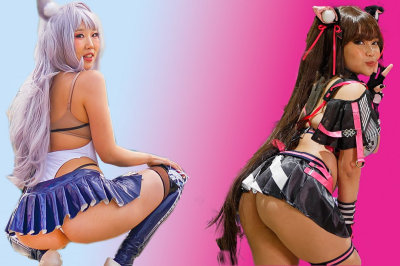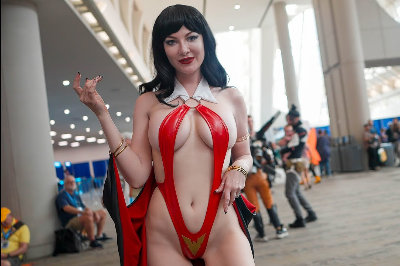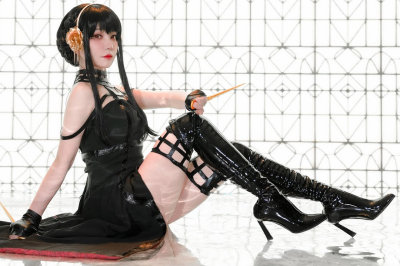UNDER THE TUSCAN SUN - Q&A with director AUDREY WELLS
It may sound like a dream job, but spending three months in the Italian countryside filming a major studio movie proved to be a formidable task for writer/director Audrey Wells, who had to endure wet weather, a cramped set and language barriers in order to bring UNDER THE TUSCAN SUN to the big screen. Based on the internationally best-selling book by Frances Mayes, the offbeat romantic comedy stars Academy Award nominee Diane Lane as a newly divorced California writer who takes a trip to Italy and, once there, decides to stay and make a fresh start among the rolling hills of Tuscany. Along the way she befriends the Polish craftsmen she hires to fix up her villa and attracts a new suitor, played by Italian heartthrob Raoul Bova. "There's been very few movies about a grown-up woman who's on some kind of journey, asking 'Why am I here?'" says Wells, 43, whose previous outing as a director was the 1999 film festival favorite GUINEVERE. As a screenwriter, Wells' credits include THE TRUTH ABOUT CATS AND DOGS, GEORGE OF THE JUNGLE and her latest, an adaptation of the Japanese film SHALL WE DANCE? that will star Richard Gere and Jennifer Lopez. With UNDER THE TUSCAN SUN already a breakout hit with US audiences, Wells talked about the challenges of making the film and why she only works on movies she's passionate about.
How is the film different from Frances Mayes' book, Under the Tuscan Sun?
Frances' book is an autobiographical account of going to Italy with her second husband whom she's madly in love with, and they buy a villa together and experience Italian life. She writes about the culture and the food, and she includes recipes in her book - so it wasn't something that could easily be translated into a movie. It was a book without a plot or characters. But I was working on an idea in my own mind about a woman overcoming heartbreak and I realized that I could take that story and put it together with Frances' book, meaning I could take the instigating incident of buying a villa in Tuscany and I could give that to my character and use it as a launching point, incorporating many of the ideas in Frances' book along the way.
What are some of those ideas you ended up using in your screenplay?
Well, lots of details. For instance, Frances was in a storm and an owl landed on her windowsill and I put that into a scene. She had Polish immigrant laborers fix up her villa, so I created three Polish characters to work on the house in the film. I really feel like Frances and I were hand-in-hand and consider this to be a collaborative effort.
What's Frances' reaction to the finished product?
She loves the movie. I know that she sees her book in this film, even though almost all of the characters are my invention, because her book and my characters have something in common. In both cases, somebody's going on an internal journey, an adventure into one's self.
Along that journey, your characters discover the importance of friends and how friends become a kind of family. As a filmmaker, did you set out to convey that message?
I definitely wanted to say that happiness can creep back up on you while you're doing other things and that family can happen to you in an unconventional way. I also wanted to make a movie that looks at the process that so many people go through, which is trying to recover from an emotional disaster. Most of us have experienced a day when we wished we were dead and then, later, a day when we were glad to be alive again. But something happens in between those days, and I wanted to try to dramatize that.
And happiness for Frances isn't necessarily in finding another man, right?
Well, one thing I hope I did here is write a story that's an unconventional romantic comedy because it doesn't center on a woman and one man. In a typical romantic comedy story structure, 30 minutes into the movie the protagonist would meet the guy that she's going to have good and bad times with until the movie is over. This movie is structured in an unorthodox fashion in that there isn't one guy who takes her through the entire picture.
What about Raoul Bova's character, Marcello? He's quite the hunk, isn't he?
People seem to think that Raoul plays the so-called Latin lover, but I tried to undo that with comedy. He's not the stereotype that some people have of Italian men, because he's much too gentle. He's not a wolf. I knew that my character was going to have sex with him the first day that she meets him so I tried to choose somebody who a woman would trust and not somebody scary. And Raoul isn't the stereotype of a Latin lover. He's much too sweet for that.
How did you avoid Italian stereotypes in general?
It's a tricky thing to do because sometimes stereotypes do exist. I remember when I first arrived in Italy I saw three nuns walking across a piazza eating ice creams and I thought, if I put this in the movie it's going to look like a cliché. I've never lived in Italy and had barely visited there before I hit the ground six weeks before we started shooting, so I really relied on Frances' book to help me deepen my understanding of the country. Then, I just treated the characters as real people and tried to tap into real emotion. I think if you direct the actors that way, the characters transcend cliché.
Was there a particular reason why you chose to make Frances' best friend, Patti, a lesbian?
Yes. I wanted to concentrate on this theme of heartbreak and felt that if I only had women whose hearts were broken by men, it would be misinterpreted. I didn't want the message to be that men are bastards. Rather, I wanted to show that heartbreak is an equal opportunity killer, whether you're straight or gay, a woman or a man. I have a lot of male friends and all of them have had to answer similar questions for themselves. Who am I going to be with? Am I going to have a family? How am I going to get myself out of this terrible hole that I've fallen into? Clawing your way back from disaster doesn't just happen to straight women.
One of the most memorable aspects of this movie is the marvelous scenery. How easy was it to capture the beauty of the landscape on film?
Actually, it was very difficult. We were shooting in the rainiest fall-to-winter season that they've ever had in Italy, and when it wasn't raining it was hazy - and nothing looks good in the haze. I was really afraid that I was going to end up being the woman who made the ugly Tuscany movie. But I went back in May and shot some landscape stuff on some very clear days, and that was a huge relief to me because up until then I didn't have vistas that looked very good.
How about finding the perfect villa? It's so central to the story, isn't it?
Looking for the house was the first thing we did when we landed in Italy, and we looked at maybe 15 or so. It was important to me that we look at small ones because I didn't want to ruin the fantasy by putting Frances in some fantastic palazzo. We didn't have the money to build a set and that meant we were going to have to work in whatever location we found, and they all presented challenges because they were hundreds of years old and had small rooms with low ceilings, meaning there was no nowhere to hang the lights. The house that we decided on wasn't beautiful but it had slightly bigger rooms and higher ceilings and it happened to be in the town of Cortona, which was nice because that's where the story takes place in Frances' book.
Talk about casting the lead role. Was Diane Lane the obvious choice from the beginning?
Diane was the only one I wanted and the studio was entirely behind that. I needed an actress who was going to be very brave and very honest about her emotions, someone who was going to be authentic in front of the camera and not just pull something out of her bag of tricks. And I knew that Diane could do that. I knew that I could fashion a comedic tone around her and the audience wouldn't forget the pain of the character. As a director, you can keep the camera on Diane for hours. You don't need to cut away because she's thinking something new every two seconds, and her face reflects that.
Having sat in the director's chair twice now, which do you prefer - writing or directing?
I really like being a screenwriter. I'm happy that I can make a living as a screenwriter because it means I'll never have to make a living as a director. When a director has to make a living, he or she takes movies they don't really care about or aren't really passionate about because they have to put bread on the table. That will never be me.
As a filmmaker, do you believe there are "women's movies"?
Yes, but I think some can have crossover appeal. There are fantastic action movies that women would totally love and there are great movies with a female protagonist that men can love. I think Under the Tuscan Sun is a human comedy, and while there are films that are made for target audiences, I did not have women in mind when I wrote this movie. I had people in mind and people of both sexes seem to be enjoying it.
Question and Answer Text Copyright Buena Vista International



